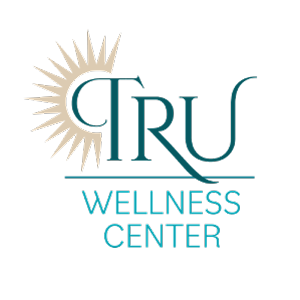
Bipolar disorder is a mood disorder that involves mood fluctuations from a hyperactive or manic state to a depressed state. People diagnosed with this disorder have a lifelong struggle with the cycling of profound depression and elevated mood.
TRU Wellness Center offers residents of Arizona and Minnesota comprehensive outpatient and virtual telehealth options for a range of mental health conditions we treat, including bipolar disorder. Call 888.680.7025 to learn more about our programs and services or to get started with treatment.
What Is Bipolar Disorder?
Bipolar disorder, also known as manic-depressive illness, is a mental health condition that causes extreme mood swings. These mood swings can range from episodes of elevated or irritable moods (known as mania) to bouts of depression. People with bipolar disorder may also experience periods of normal mood in between these episodes.
There are several types of bipolar disorder, including:
- Bipolar I disorder – This type involves episodes of severe mania and sometimes depression.
- Bipolar II disorder – This type involves episodes of hypomania (a milder form of mania) and depression.
- Cyclothymic disorder – This type involves numerous periods of hypomanic symptoms and mild depressive symptoms over the course of at least two years.
- Other specified and unspecified bipolar and related disorders – These types include symptoms that do not match the criteria for the other three types but still cause significant distress or impairment in daily life.
Bipolar disorder can occur at any age, although it typically develops in late adolescence or early adulthood. It affects both men and women equally.
What Are the Symptoms of Bipolar Disorder?
The symptoms of bipolar disorder vary depending on the type and severity of the mood episode. In general, manic episodes involve extremely high energy levels, racing thoughts, and impulsive behavior, while depressive episodes involve feelings of sadness, hopelessness, and loss of interest in activities.
Some common symptoms of mania include:
- Abnormally upbeat or irritable mood
- Increased energy and activity levels
- Decreased need for sleep
- Rapid speech and racing thoughts
- Impulsive behavior, such as spending money recklessly or engaging in risky activities
Some common symptoms of depression include:
- Persistent feelings of sadness, hopelessness, or emptiness
- Loss of interest in activities once enjoyed
- Changes in appetite and weight (either increased or decreased)
- Difficulty sleeping or sleeping too much
- Fatigue and loss of energy
Depending on the type of bipolar disorder, these periods of mania and depression can cycle quickly, or the individual could remain in one state for extended periods of days or weeks.
Common Bipolar Disorder Treatment
Bipolar disorder is a chronic condition that requires lifelong management. Treatment typically involves a combination of medications, therapy, and lifestyle changes.
- Medications commonly used to treat bipolar disorder include mood stabilizers, antipsychotics, and antidepressants. These medications help to regulate mood and manage symptoms. One such medication offered at TRU Wellness Center in Minnetonka, MN, is ketamine. We provide ketamine services in the form of ketamine nasal spray. Ketamine has proven effective in treating bipolar disorder, especially for individuals who have not found success with other medications.
- Therapy, particularly cognitive-behavioral therapy (CBT), can also be beneficial in managing bipolar disorder. CBT helps individuals understand their thoughts and behaviors and develop coping strategies for managing mood episodes.
- In addition to medication and therapy, lifestyle changes such as maintaining a regular sleep schedule, avoiding drugs and alcohol, and managing stress can also help to manage bipolar disorder.
At TRU Wellness Center, we use the latest evidence-based therapies to fashion individualized treatment plans for our clients. We are committed to helping you or a loved one manage your bipolar disorder and regain balance and enhanced well-being.
Contact TRU Wellness Center
At TRU Wellness Center, we understand the challenges of living with bipolar disorder. Our team of experienced professionals provides comprehensive treatment for individuals struggling with this condition. We offer individual therapy, group therapy, medication management, and support services to help our clients thrive.
If you or someone you love has been diagnosed with bipolar disorder, know that there is hope for a fulfilling life. With the proper treatment and support from a reputable center like TRU Wellness Center, individuals can learn to manage their symptoms and live a meaningful life. Call us at 888.680.7025 or reach out online today.
[1] National Institute of Mental Health – “Bipolar Disorder”
